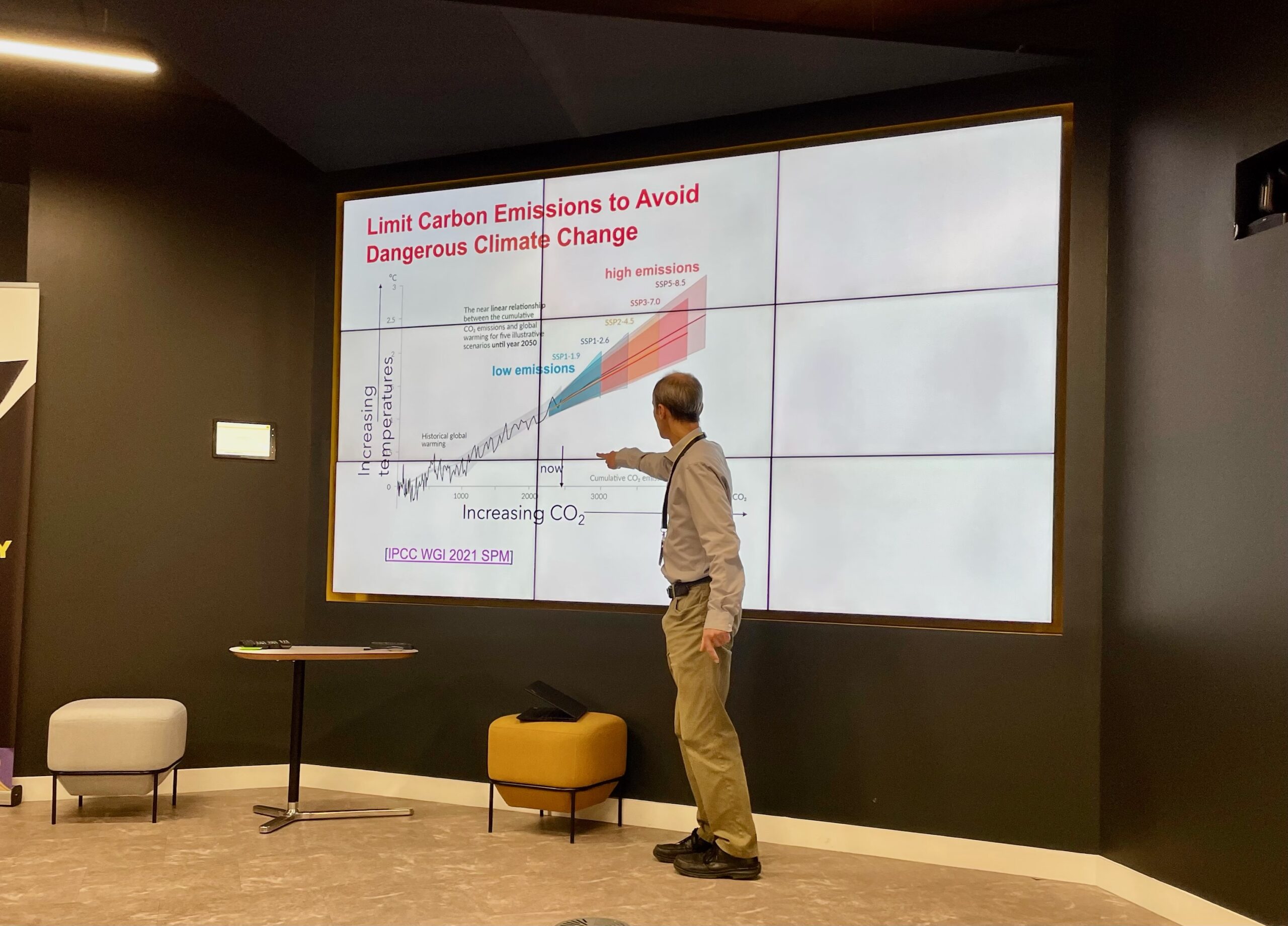Professor Richard Allan of the Department of Meteorology came runner up in the 2024 Research Awards in Public Engagement for Research, thanks to his efforts using storytelling to communicate climate science findings to a range of audiences.
Read more about his project ‘Communicating climate research to inspire positive action’.

By raising awareness using positive messages and solutions, a Reading climate scientist is educating and engaging others to inspire action to tackle the causes of climate change. The project has successfully engaged diverse audiences including schools, businesses and local groups by adapting communication methods and has fostered collaborative sector initiatives on electric vehicles and charging networks.
Climate change is affecting every inhabited region across the globe and human activities are intensifying extreme climate events including heatwaves, heavy rainfall and droughts.
Climate scientist Professor Richard Allan, a lead Intergovernmental Panel on Climate Change (IPCC) author and STEM Climate Ambassador, has been connecting with local groups, businesses and schools to educate and engage on the causes and consequences of human-caused climate change and motivate positive actions.
Using an adaptable approach, Professor Allan combines the latest IPCC findings with engaging content on ancient climates and recent weather extremes that is appropriate to audiences with limited knowledge of the subject. The evolving communication style successfully reaches audiences with different skillsets, from oral storytelling to formal presentations. Schools benefit from hands-on demonstrations linking research to learning, while for businesses and local government, the focus is on the local context.
Key to the approach is balancing state-of-the-art research with positive messages and solutions to inspire action rather than despondency. Delivery and content are continuously refined, including emphasising the exciting aspects of the science to motivate engagement, leading to more focused events.
Engagement with the transport sector, especially regarding electric vehicles and charging networks, has yielded positive results. Keynote presentations and collaborations with sustainable energy businesses like GRIDSERVE have showcased strong reactions and motivation for collective action toward achieving net-zero carbon emissions. Other collaborations and projects have followed, alongside ongoing requests for involvement from podcasts to an EV charging innovation centre.
Extensive communication through the media, blogs, social media and podcasts has further augmented the project’s reach. The evolving formats provide a model for engaging diverse audiences and specific sectors, demonstrating the power of effective science communication in increasing climate understanding and inspiring solutions.
“…having caught up with a few year 9 and 10 students they seemed to have really enjoyed the talk and apparently couldn’t stop discussing it in the final lesson of the day, so you’ve clearly inspired!”
Dr J Futyan, Marist school
